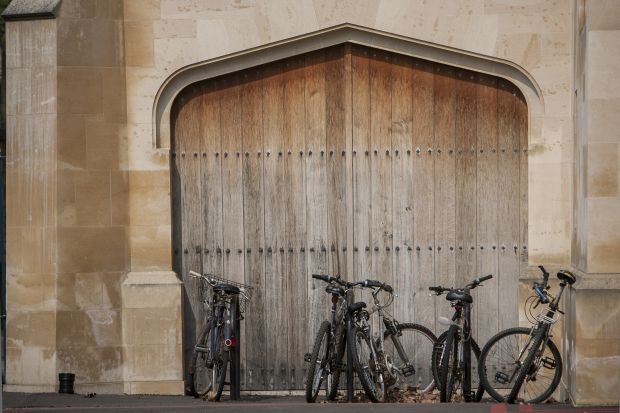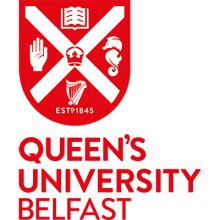
Do bankers deserve the pay they receive?
Your answer to this question may not actually cut any bankers’ bonuses, but it could secure you a place at one of the best universities in the world.
The University of Oxford interview process is often perceived as a way to catch prospective students out, but this isn't actually the case. Instead the aim of the interview is to determine how students approach questions in their chosen field of study and how they think critically about the answers.
The university has released some sample interview questions accompanied by explanations from the interviewers themselves about what the questions are designed to test.
Whatever you hope to study, these insights could give you the edge you need to impress when it matters most.
Think you know the answer? Think again
With exceptions for some practical questions in science or medical subjects, the interviewers are not always looking for a straightforward answer.
Some questions, such as moral or philosophical questions, don’t have an answer. But even when there is some way of telling “right” from “wrong”, more often than not the interviewer is not asking what you might think he or she is asking.
Take the following example from an economics and management interview:
Do bankers deserve the pay they receive? And should government do something to limit how much they get?
On the face of it, this looks like an ethical question. If it had been asked in a philosophy interview, deliberations on fairness and the ethics of pay would be wholly appropriate.
But in an economics and management interview, you have to expect a discussion about economic theory.
Interviewer Brian Bell, of Lady Margaret Hall, said: “The key point about this question is trying to get candidates to think about the economics of pay rather than just whether they think it is fair or not.”
To really impress, candidates would have to give a case for whether or not the banking industry operates a competitive labour market, and whether the industry as a whole is competitive – ie, whether disproportionately high profits, in part distributed in salaries, are the result of uncompetitiveness.
Questions in interviews are often simply phrased, but they are in fact designed to challenge some deeply held assumptions you may have, or to tease out some relevant theory. Every question is an opportunity to show how you think, not necessarily what you think, so don’t fixate on getting the right answer, or even an answer at all.
But don’t ignore the obvious
Can archaeology “prove” or “disprove” the Bible?
In this example, from an oriental studies interview, your instinct is probably correct: no, archaeology cannot prove or disprove the Bible, because the evidence and relationship between evidence, text and religion is far more complex than the question allows for.
Perhaps this answer seems just too obvious. But again, what matters here is not your answer but your discussion points.
Interviewer Alison Salvesen, from Mansfield College, said she is looking for students to recognise the different roles played by academic Bible study and archaeology, and the different sources they use.
She said: “In the end I would hope the candidate would work towards a realisation of the very different nature of these types of evidence, which sometimes gives a complementary picture, while in others it may be contradictory. Both require very careful interpretation, and just arguing that ‘the Bible says’ or that ‘archaeology proves’ is much too simplistic.”
The important thing here is not to doubt yourself too much. Most questions don’t have an obvious answer, but some do, so if something is instinctive to you, don’t disregard it just for its simplicity. Even if this means you come to the same conclusion as many other candidates, the interviewer will give you credit for saying something interesting, relevant and thoughtful.
Best universities in the UK
#UniAdviceWeek: a first year student from University of Oxford takes over our Twitter account
Tips for acing your University of Oxford interview
Can you answer these Oxford University interview questions?
Think big
Given limited time to test your abilities, interviewers will ask big questions to cover a range of concepts, and they expect big answers too.
In a philosophy, politics and economics interview, for example, the questions could well cover all three subjects.
In such an interview, Professor Bell might ask:
Why is income per head between 50 and 100 times larger in the US than in countries such as Burundi and Malawi?
He said: “The trick is to think widely and not to try and fit the answer to some lesson that has been learned in school.”
An answer might address differences in technology, capital and other resources, and the relationship between technology and productivity. Candidates could go further and think about the role of education, infrastructure, trade and law in sustainable development, and the impact they have on income.
Nerves can often provoke otherwise chatty students to give short and decisive answers, or to overly focus their answer on one point. Lateral thinking is really the key to demonstrating the extent of your ability, so try to talk at length about a range of relevant concepts, and bring in any overarching theory that could guide your answer.
Apply your knowledge
Not all questions are designed to take you beyond what you already know. Some questions want you to use what you have already learned in school in an unfamiliar context.
In a biomedical sciences interview, candidates will likely have come across many of the fundamental ideas in biology and chemistry already, but will not have any clinical experience or have asked deeper questions about why things happen as they do.
For this reason, Robert Wilkins from St Edmund Hall asks:
Why is sugar in your urine a good indicator that you might have diabetes?
He said: “This question builds on general knowledge and material studied at school in biology and chemistry to assess how students approach a clinically relevant problem.”
All the relevant science will have been covered in school, but the answer requires students to make some connections for themselves. The interviewer will guide the student to think about why glucose is not normally found in urine, and what relevant differences there are in diabetic patients, drawing on kidney filtration and then reabsorption through carrier proteins.
Generally, the real trick is identifying which elements of your existing knowledge will be helpful. In the example above, students don’t just need to understand diabetes and renal function, but also reabsorption. In other cases, you will have to make connections with ideas you’ve gleaned from outside the classroom. No topic or fact is off limits.
Take the hints
Contrary to the legends, the interviewers aren’t actually hoping to catch you out. In fact, it is more likely that they will gently guide you through their brain-teaser.
Steve Collins, interviewer in engineering for University College, sets students a practical test:
Place a 30cm ruler on top of one finger from each hand. What happens when you bring your fingers together?
Most students will guess, incorrectly, that the ruler will fall off on one side based on which finger was closest to the centre to start with.
But in fact, this makes no difference and both fingers will reach the centre of the ruler at the same time, with the ruler balanced on top.
Professor Collins said: “We like to see how candidates react to what is usually an unexpected result, and then encourage them to repeat the experiment slowly. This helps them observe that the ruler slides over each finger in turn, starting with the finger that is furthest from the centre. With prompting to consider moments and friction, the candidate will come to the conclusion that moments mean that there is a larger force on the finger that is closest to the centre of the ruler.”
The discussion will move on from there, but the crucial thing to remember if you get stuck on practical questions, is that the interviewers want to understand how you think, not stump you completely. So pay attention to any hints they offer.
Keep going
Mathematics, philosophy, computer science, psychology and many other subjects require a persistent and precise mode of reasoning. In these interviews, one question could take a significant amount of time and energy to work through, perhaps even requiring repeated iterations of the same method.
For example, the following question from an experimental psychology interview says:
Imagine that 100 people all put £1 into a pot for a prize that will go to the winner of a simple game. Each person has to choose a number between 0 and 100. The prize goes to the person whose number is closest to two-thirds of the average of all the numbers chosen. What number will you choose, and why?
As interviewer Nick Yeung, from University College, explained, the solution has a “recursive nature”. The candidate, after initially choosing a number he or she hopes is closest to two-thirds of the average of all chosen numbers, must expect that others will also choose the very same number (for the same reasons). This then requires choosing a different number (two-thirds of the average of those updated chosen numbers), but then the whole process starts again.
Ultimately, everyone will settle on zero as their choice, and this is the formal solution, although it raises more questions about rational choice and actual choice than it actually solves.
Professor Yeung said: “What’s clear from all of this is that we’re not looking for a single answer. Rather, we’re interested in seeing how people think through a problem, figure out what are the relevant factors, respond when new information is provided and so on.”
With a question like this, and similarly complex problems like "how do pirates divide their treasure" [under computer science], the answer involves a bit of a slog. But do not give up: every step you take is even more evidence of your clear-thinking and problem-solving skills.
Read more: What happens after you submit your Ucas application?















Have your say